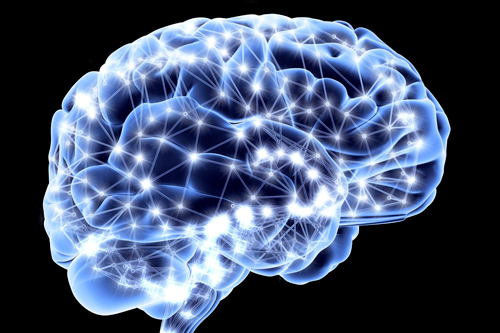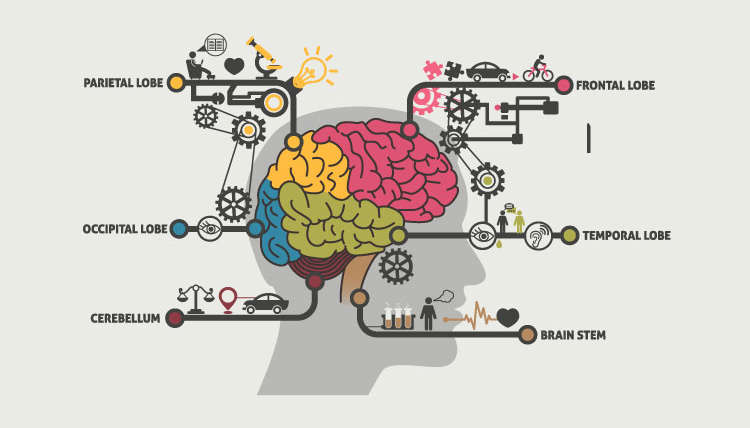
The first chapter of my next book explores how trauma changes your brain. For the inside scoop, I’ve been interviewing Dr. Andrew Hill, a cognitive neuroscientist who’s studied attention and self-regulation. The Director of Neurocognitive Services at Alternatives Treatment in Beverly Hills, Dr. Hill is a lead scientist for truBrain, a cognitive nutrition company. He’s also a lecturer at UCLA and uses neurofeedback to empower clients in his private practice.

What is neurofeedback (NFB) and its purpose?
NFB is biofeedback (the process of gaining awareness of physiological function) in brain waves. We’re simply pasting electrodes onto your scalp and measuring the different bands—alpha, beta, theta, delta, gamma—that you’re producing moment to moment. The purpose of this is to help you improve self-regulation.
What are the signs that someone would be a good candidate for NFB?
I believe that two-thirds of mental illness is a problem of regulation. Your prefrontal cortex is the seat of executive function in your brain, the part that makes rational, analytical decisions. When it doesn’t function optimally, this causes issues in all kinds of things. In ADHD. In addiction. In Post-Traumatic Stress Disorder. All are an inability to stop your brain from pushing you around. If you’ve got impulsivity and problems focusing or controlling attention or inhibiting behaviors, anxiety, ADHD, major depression, PTSD, OCD, sleep problems, failure of the brain to regulate appropriately—you’re a great candidate for NFB.
How do you approach working with a client?
First, I do a quantitative assessment with the electroencephalogram (EEG) and look at your brain map to see how it differs from the typical. Just seeing your physiology and understanding what’s going on is very empowering. Then, we can train for executive function: The prefrontal cortex does most of its job by being inhibitory. As you train it, the mind becomes calmer and less reactive. We also often do profound relaxation training, where you’re sitting with your eyes closed and listening to gentle sounds and training up the real slow, relaxing brain waves. This training produces a light trance that is a very healing state. By strengthening the executive function and the relaxation state, you can balance your brain and find your mind quieter, less reactive; attention is easier to stabilize, and it’s easier to pay attention for long periods of time. Of course, when you work with attention, sleep tends to get fixed, too, because increased frontal control reduces anxiety.
Explain how NFB helps reduce anxiety.
I would look at the posterior cortex (the back part of the brain) and see if it’s going into a relaxed alpha state or if it’s staying in a high, engaged theta state. I would measure how much alpha is produced. Then, as the alpha fluctuates, I would program the computer to trigger a chime, tone, or moving animation. The brain likes to receive input. So whenever the brain gets this reward, it learns, “I want to make more of that stimulus.” Over time this process trains you to produce more/less or faster/slower of the brain waves you’re training. It’s a process that takes twenty, thirty, even forty sessions, but you can really exercise shifts around the patterns in your brain. The more alpha you train your brain to produce, the less anxiety you feel.
How is NFB helpful in ways that differ from, say, meditation?
Not everyone can get to that state of maintaining a practice of internal control. It’s often hard to get those initial skills established. NFB is noncognitive. I push your brain around gently, shaping it with operant or instrumental conditioning. You tell me, “That felt better, or that felt worse. I slept better. I was less anxious.” As we do more of it, eventually we start giving you additional internal states to access and to practice. It can often be an adjunct for someone who is in therapy, or has a meditation practice. Through training the regulatory elements of your brain, we give you a different set of responses to help better regulate your mind. So the benefits are similar to meditation, but the process offers an alternative to you working hard to control your attention.
Post Disclaimer
This content is for informational purposes only and does not constitute medical advice. Please consult a healthcare professional for any medical concerns.



